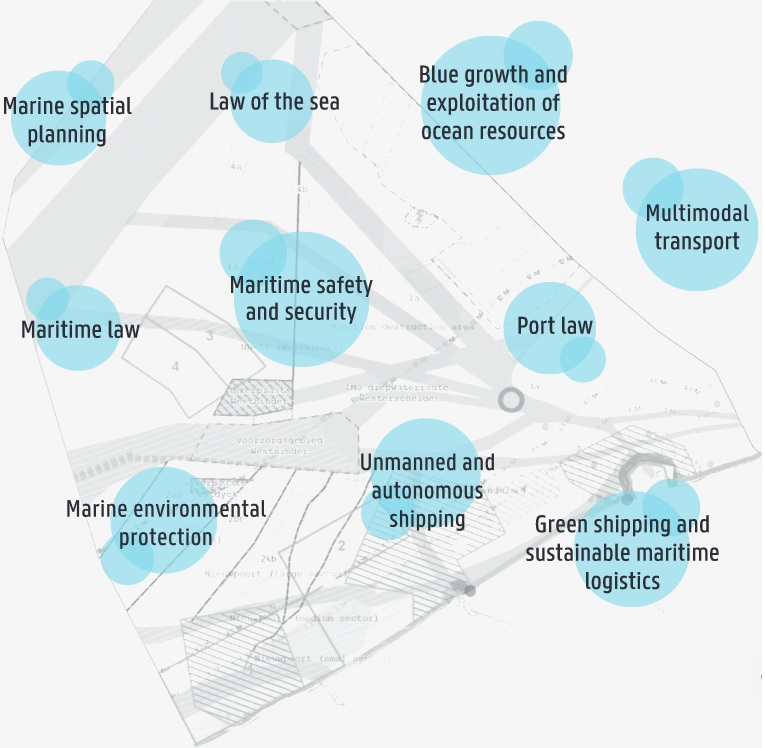Research
MISSION
We conduct legal and multidisciplinary research with a focus on oceans and ocean related activities.
Our research contributes to sound and sustainable ocean governance.
TOPICS

CONTRIBUTIONS TO SCIENCE AND SOCIETY
Our research analyses opportunities, threats and other aspects related to the governance and sustainable management of oceans and seas. We contribute to improved national and international regulations in order to provide law and order at sea, as well as to achieve the sustainable development goals for the marine environment.
COLLABORATION
Due to the multidimensional nature of our research, the Maritime Institute welcomes cooperation with a wide variety of (scientific) actors from different disciplines and backgrounds (law, marine biology, economics, engineering, spatial planning, logistics, ...).
Research internationalization is one of our main objectives, since research within this field knows no borders and different perspectives provide an added value.
The Maritime Institute also provides consultancy to non-academic actors, such as government agencies, non-governmental organizations and the private sector.